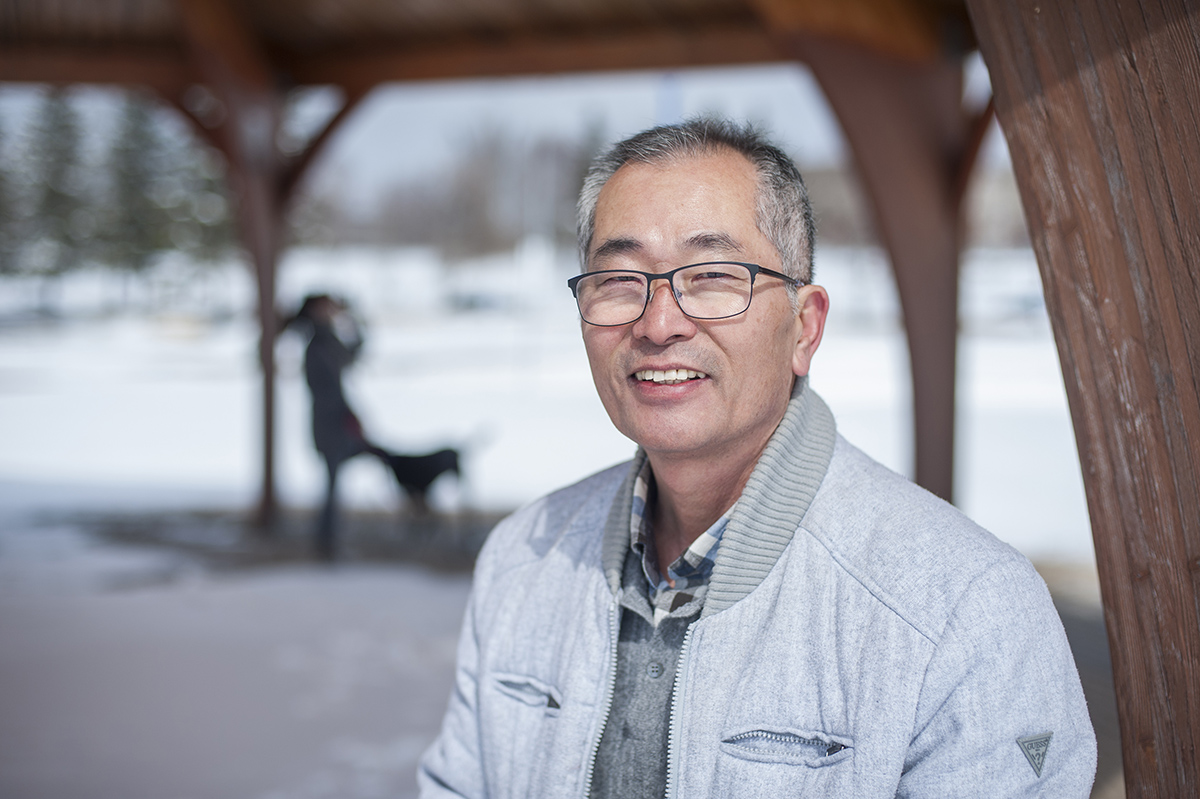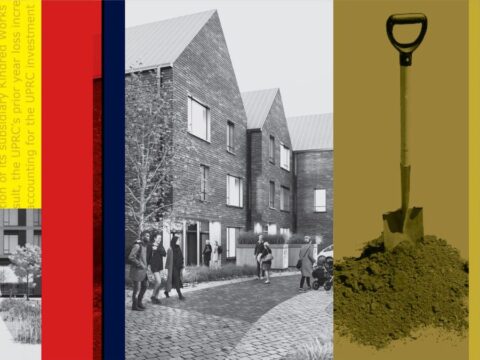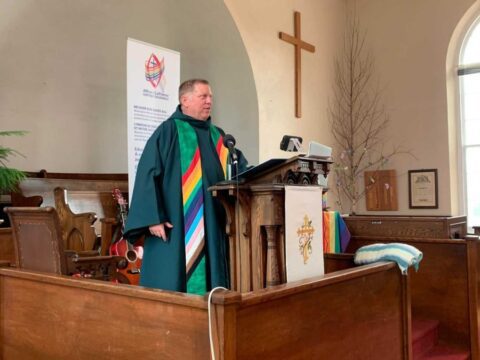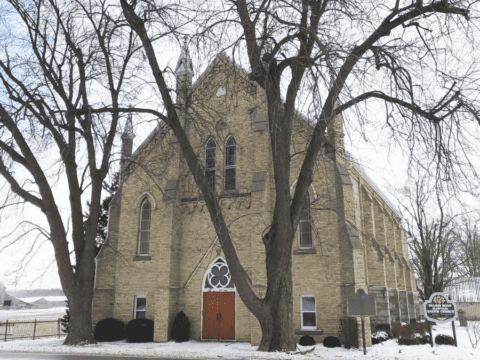Jong Bok Kim went to prison in South Korea for the first time in 1978. Five minutes into a peaceful pro-democracy demonstration he had organized, the young law student was arrested by the secret police.
South Korea’s constitution had been changed “to ensure the lifelong rule of military dictator Park Chung-hee,” Kim says. Angry and upset, he joined a student movement. Unfortunately, he says, “no freedom of assembly, no freedom of speech, no protest was allowed — just like what’s going on in North Korea today.” He was sentenced to three years in jail.
You may unsubscribe from any of our newsletters at any time.
Today, Kim is four decades and half a world away from his cramped cell in Seoul. The former political prisoner is now pastor of a United Church congregation in the northern Ontario community of North Bay — and by a strange twist of fate, one of the people instrumental in freeing him lives a short drive away.
How Kim came to be here is a story of intersecting journeys: from activist to immigrant, from non-believer to Christian and from lawyer to minister. But uniting all the strands of his life is a deep sense of justice — a commitment felt more acutely as escalating tensions between the two Koreas have given way to rising hope for a historic peace.
Like other students arrested at the time, Kim was harshly tortured under interrogation. All four limbs were handcuffed to a bar like a “pig over a barbecue,” he says, and water was poured slowly and repeatedly over a cloth covering his face. The police sought a false confession — that “an agent from North Korea had ordered the demonstration.”
With nothing to confess, he was finally locked up in a two-by-three-metre prison cell. To prevent the spread of anti-government sentiment to other prisoners, guards kept him in solitary confinement, allowing no reading material and no visits except from immediate family. He was 20 years old. When his mother, unable to touch him behind iron bars, first saw him, she just cried. He was fortunate, though, he says: “Some people were killed.”
Then, almost a year into his three-year term, gaunt and hurting, Kim was suddenly released. American pressure had been brought to bear. “I was so thankful to Jimmy Carter at the time,” he says. It took 35 years and a move to northern Ontario for him to discover the surprising story behind U.S. President Carter’s advocacy for political prisoners.
In 2013, Kim arrived in North Bay to serve Omond Memorial United and Knox United (which has since closed) in nearby Callander. He knew nothing of Erich Weingartner, a longtime Callander resident with years of experience in both Koreas. In fact, Weingartner had been in South Korea in 1979 investigating human rights violations on behalf of the World Council of Churches. Despite intense surveillance and considerable danger, he had managed to smuggle out a secret list of human rights violations and detainees compiled by a small group of Korean Christians.
Once safely home, Weingartner turned the document into a book, and President Carter was given a copy. The Americans, then as now, were a powerful force in South Korea. Armed with this evidence on an official visit, Carter demanded, and got, the release of many political prisoners, including one arrested on Sept. 13, 1978. Student victim number 155. Jong Bok Kim.
Although Weingartner was not a member of Kim’s congregation, they had a mutual friend in Marion Pope, a former United Church missionary to Korea. Kim was looking for help with his English pronunciation in his sermons, so Pope suggested Weingartner because of his Korean expertise.
The Weingartners invited Kim and his wife, Julie, to their house on Lake Nipissing. Weingartner told them about his work in South Korea and asked Kim what he was doing at that time. “I was in jail,” Kim replied. Weingartner understood immediately and grabbed a now-elderly copy of his book from his study. Flipping through the pages, they found Kim’s name and arrest date.
For 35 years, Kim had known nothing of this document or its power. “I am so grateful for Erich’s hard work and commitment to human rights in the Korean Peninsula,” he says now with a smile. Weingartner, too, is thrilled to know someone locally who benefited from the book. “It never, ever occurred to me that this could happen.”
A few months after Kim’s release from prison in 1979, the dictator Park Chung-hee was assassinated. A year later, Kim was allowed to resume his law classes. After graduating, he went to work as a corporate lawyer in Seoul. But more military dictators succeeded Park, still restricting freedom of speech and assembly. The underground democratic movement grew explosively, and Kim became one of its leaders.
In 1986, he was again arrested, interrogated and tortured. But “my sentence was only six months this time,” he says, “not three years.” The media had begun to speak out. “People gradually realized dictatorship was not right.” Almost every day, there was a street demonstration in Seoul.
In 1992, civilian rule appeared in South Korea, with free elections mandated every five years. By then, Kim admits he dreamed of “an ordinary life.” He went to India and travelled alone for two years, an experience that sparked his own personal journey from atheism to the beginnings of faith. “The people were so devoted. There were temples everywhere,” he says. People prayed in the morning and at night before sleeping. “Finally I began to see the power in it.”
Back in Seoul, Kim decided to immigrate to Canada, where he felt he could live more meaningfully. He found his way to Trinity-St.Paul’s United in Toronto, and it was here he encountered Jesus as liberator, who looks after “the marginalized and prisoners.” His social justice passion was reignited. Encouraged by his church community, he embarked on theological studies at Toronto’s Emmanuel College.
After ordination, he served almost a decade at churches in the city, where he met and married Julie. When an opening came up in North Bay, he applied. “We were ready to experience life outside Toronto,” he says.
Linda Craig, a member at Omond Memorial United, remembers the first time she met Kim. He had arrived from Toronto on a blisteringly cold March day wearing a thin leather jacket and dress shoes. The hiring committee worried about choosing someone who might not enjoy the northern winters. Still, his appreciation of the beauty of Knox United, a little church that was part of the call, had captured their hearts; and then, Craig says, they “were just blown away” after phoning his references.
Kim is, she says, “one of the hardest-working ministers I have ever known.” A Sunday service last February featured photo projections of the Canadian Olympic team and Korean athletes. It was background to his preaching about glory and trouble and God’s presence in both — as well as teaching four delighted children the proper pronunciation of Pyeongchang (hint: the second syllable is closer to “tong” than “tang”).
He and Julie visit retirement and nursing homes together, often bringing a keyboard so they can sing. And you don’t have to be sick or in a home to receive pastoral care. He phones, says Craig, just to see how you are.
In summer, the couple camps with a small trailer in nearby provincial parks, where Kim enjoys studying the stars. They learned to canoe with the help of friends and soon were enticing their reluctant dog, Cami, into the boat. “We tipped over a few times,” he says cheerfully. But now, dog sitting upright in the middle, the three go paddling together, hugging the shore on Lake Nipissing.
Kim has fallen in love with the land and people of North Bay. “I am doing what I am supposed to be doing as a minister,” he says. “Sharing the good news about God’s love.” He is grateful to be accepted here despite differences in “culture, language, appearance, skin colour.” Kim’s childhood was spent in Dukchon, a rural village of 30 households “who looked after each other like family. . . . People here [in North Bay] are like the villagers I grew up with.” Dukchon, he explains, translates as “village of generosity.”

Kim speaks of the two Koreas with passionate concern. Since Donald Trump’s election as U.S. president, the threat of nuclear war has loomed large.
Rev. Teresa Jones, Kim’s colleague on North Bay Presbytery’s mission committee, encouraged him to make a presentation on the situation. “It was riveting,” says Jones. “So many people in the [Presbytery] were saying, ‘I had no idea.’”
After the Korean War broke out in 1950, “the Korean people on both sides suffered a lot,” explains Kim. An armistice brought an end to the fighting in 1953, but there has been no peace treaty and therefore no reconciliation. The two countries are still technically at war.
The United Nations had placed the United States in charge of the Allied forces, and the American army remains in operational command of South Korean troops. While North Korea is typically portrayed as the aggressor in the region, America has little interest in a peace agreement, Kim says.
That’s because, first, if there is no more war in Korea, the over 23,000 U.S. military personnel stationed there, and paid for in no small part by South Korea, would have to go home. “They do not want to lose this important strategic place, facing Russia and China,” says Kim. Second, South Korea currently buys “fighter jets, M-16 rifles, tanks and warships” from the United States; it is one of America’s largest customers for arms sales.
The U.S. presence in the peninsula drives North Korea’s nuclear ambitions. While “South Korea has a big brother behind it,” Kim told the Presbytery, North Koreans feel they need “to survive by themselves.” He thinks America should immediately stop its annual military exercises with South Korean troops near the demilitarized zone that divides the two Koreas, “before asking North Korea to stop the missile tests and nuclear development.”
Moved by his presentation, North Bay Presbytery developed a proposal on Korea for General Council this July. The plan calls for advocacy for a permanent peace treaty, an end to military exercises and serious efforts to reconcile families on both sides. “Canada could do more,” Kim says.
Another key part of the proposal is solidarity with Korean church organizations. Thirty years ago, he explains, the Presbyterian Church in the Republic of Korea and the National Council of Churches in Korea — from whose ranks came the secret group who compiled Weingartner’s list — publicly called for peace, justice and reunification in the Korean Peninsula. Speaking out was an act of “courage and strength” in dangerous times, Kim says. “I think it’s a good time to express our support [for them].”
Reconciliation in the peninsula is never going to be easy, Kim knows. For many in the two Koreas, the other is still the enemy. But he finds inspiration in his own experience. “It was a dark period in South Korean history when I was [first] in prison,” he says. He was isolated and without hope. “I thought at that time, there is no more light for democracy.”
Just over a decade later, South Korea was celebrating its first civilian president. “We should keep that hope alive now,” Kim says. Jesus, he believes, is still among us, and he still teaches the same message today of justice and peace.
While justice is an ongoing quest, Kim has found a measure of peace in his northern home. Early last January, he set out on Lake Nipissing to walk his dog. The lake was covered with deep snow, up to his knees. But he persisted, impelled by the silence and “otherworldly beauty” of fierce sunshine on a crusted lake surface etched with patterns created by the gusting wind. The only moving form was Cami, who ran so far out he became a black dot. “I don’t think I would have had that experience anywhere else.”
This story first appeared in The Observer’s May 2018 edition with the title “From prisoner to pastor.”















Thank you for the article about pastor Kim.
I, Korean Canadian, live in Mattawa Ontario would like to contact him if possible.
My email is Kwon.younggu@gmail.com
My name is Younggu KWON.
Regards,
Young.